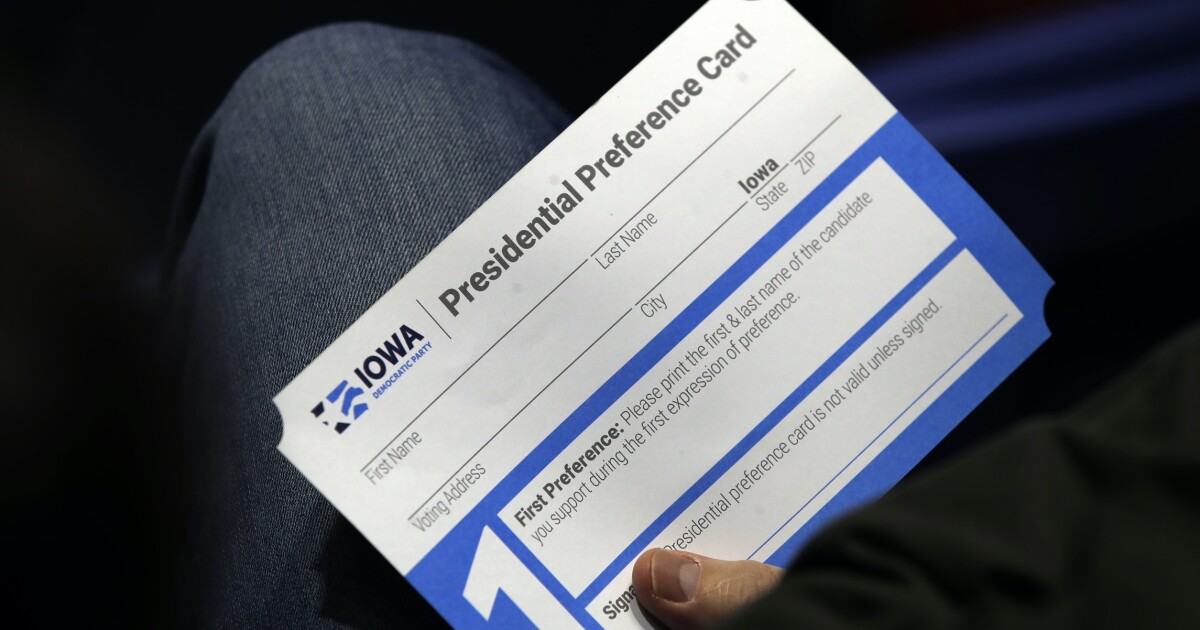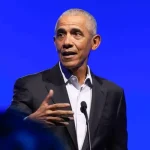

The Democratic Party is poised for a major overhaul of its presidential nominating process, with plans to add Midwest battlegrounds Michigan or Minnesota to the mix of coveted early primary states and demote Iowa from a leadoff spot occupied for decades.
A key Democratic National Committee panel was set to meet in open session Friday and Saturday inside a Washington, D.C., hotel to hash out the party’s 2024 nominating calendar. A vote recommending a new schedule for ratification to the full DNC is expected by the end of the weekend. The top priority in recent weeks has been replacing the Iowa caucuses as the kick-off contest with either the Nevada or New Hampshire primaries.
Ethnically and racially diverse Nevada could have the advantage, although the Granite State’s long-held position as the first traditional primary, second after Iowa, could sway members of the DNC panel charged with setting the new schedule. South Carolina, with its influential bloc of black Democrats who effectively vaulted President Joe Biden to the nomination in 2020, is a safe bet to remain an early primary state, possibly voting third.
The state will vote first, however, if Biden has his way. In a letter sent Thursday evening to the DNC’s Rules and Bylaws Committee, the president requested that the Palmetto State host the first primary election on Feb. 6, 2024, followed by New Hampshire and Nevada one week later. Georgia would vote fourth, on Feb. 20, and Michigan would go fifth on the 27th. The proposal has a strong chance of passing, given Biden’s sway over the party, but the ordering, already facing blowback from the New Hampshire Democratic Party, is not a done deal and will be debated over the next two days.
ZELDIN WEIGHS RNC CHAIRMAN BID WITH HELP FROM TRUMP ALLIES
A key question is which state will replace Iowa as the crucial Midwest battleground in the group of states that vote early in the Democratic primary. The choice is boiling down to Michigan or Minnesota, and either would represent a sea change of sorts in Democratic politics.
Neither state has enjoyed the prestige and attention that comes with anointing a front-runner in the presidential sweepstakes. By comparison, Nevada, New Hampshire, and South Carolina are all veterans of the process; even if New Hampshire gets stuck with voting second behind Nevada, for example, it will remain an influential early state.
The Saturday vote by the DNC Rules and Bylaws Committee comes after two years of hand-wringing and haggling over the future of the party’s presidential nominating strategy. The Republican Party is keeping the Iowa caucuses first, and the New Hampshire primary second, per decades of tradition. But the Democrats have soured on that approach, particularly Iowa voting first — especially since 2020.
Yet frustration with the soon-to-be revamped calendar began well before then.
The first knock against Iowa was the botched counting of the Democratic caucuses’ results in 2020. The other complaint, long building, is that the state is overwhelmingly white and does not represent the party’s ethnically diverse and urban voting base. A third gripe is that Iowa has become a firmly red state, diminishing the benefit of Democrats investing so much money and manpower there in the primary.
The race to replace Iowa and break into the group of early state primaries was a multiphase process, with several state parties pitching the DNC committee in charge of devising the new calendar. With prerequisites such as diversity, affordability, and general election competitiveness weighed, Michigan and Minnesota have emerged as likely to gain entry into the group of early primary states.
CLICK HERE TO READ MORE FROM THE WASHINGTON EXAMINER
One decision already made: to protect the integrity of the eventual new calendar. The Rules and Bylaws Committee has already voted to levy severe penalties on any state Democratic Party that chooses to ignore the national party’s new order of voting and schedule its primary or caucus ahead of Super Tuesday.
The Democratic Party in New Hampshire, where state law stipulates that the “first-in-the-nation primary” be held there, has already signaled it will defy national party leaders if dethroned.
“The DNC did not give New Hampshire the first-in-the-nation primary and it is not theirs to take away. This news is obviously disappointing, but we will be holding our primary first,” state party chairman Ray Buckley said in a statement following reports of Biden’s nominating calendar request. “We have survived past attempts over the decades and we will survive this.”
Meanwhile, with the possibility that the panel will choose to include five states in the critical group of those that vote early, it’s possible that Iowa, though demoted, might still participate in the process early.







